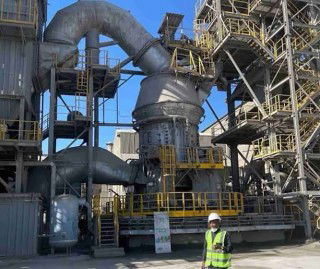Sri Lanka’s Minister of Industry and Entrepreneurship Development, Sunil Handunneththi, recently inaugurated the expansion of Tokyo Cement Group’s advanced cement manufacturing plant in Trincomalee. This fully automated, high-tech cement grinding facility adds 1Mta to Tokyo Cement’s total production capacity, bringing it to 4Mta.
During the event, Minister Handunneththi remarked, “It is deeply humbling to witness the significant impact Tokyo Cement has made, not only on the nation’s overall growth but also on the development of the Eastern Province.”
Tokyo Cement Group is Sri Lanka’s largest manufacturer of high-quality cement, concrete, and innovative cement-based products. As a truly home-grown blue-chip company, Tokyo Cement has become an integral part of the country’s growth journey, earning a reputation as the most trusted supplier in the construction industry.
Additionally, according to a company's recent announcement, Tokyo Cement Group reported a turnover of LKR12,960m (US$43m) and a Profit After Tax (PAT) of LKR664m for the fourth quarter ending 31 March 2025. This compares to a turnover of LKR13,145m and a PAT of LKR722m for the same period last year. The decline in earnings can be attributed to price reductions, despite a 13 per cent increase in volumes during the quarter.
The growing demand for construction-related credit facilities was driven by the residential and commercial sectors, which were encouraged by declining interest rates and material costs, as well as stable foreign exchange and freight rates. These trends suggest a favourable pre-development environment, conducive to long-term growth in the construction sector. Consequently, the Purchasing Managers’ Index for the Construction Industry reflected this positive momentum during the quarter, spurred by increases in both new orders and purchasing quantities. However, large-scale development projects have yet to commence, as the government seeks financing and bilateral partnerships for infrastructure investments.
The cement industry has experienced a YoY demand increase, rising from 3.96Mt to 4.71Mt, partly due to latent demand and the low base effect of the previous year. Market dynamics have shifted with the entry of a new local grinding operator and multiple cement importers taking advantage of relaxed import restrictions, intensifying competition in an already saturated market. On a positive note, a larger portion of the demand was fulfilled through locally manufactured cement, reinforcing the industry’s self-sufficiency and promoting local value creation.
The industry remains optimistic about a resurgence in demand, driven by the restart of new and previously stalled construction projects led by private sector investors and developers. This is expected to be further supported by state-led infrastructure initiatives, backed by active fund disbursements from international development agencies and bilateral partnerships with countries such as India, Japan, and China.
By Abdul Rab Siddiqi, Pakistan
